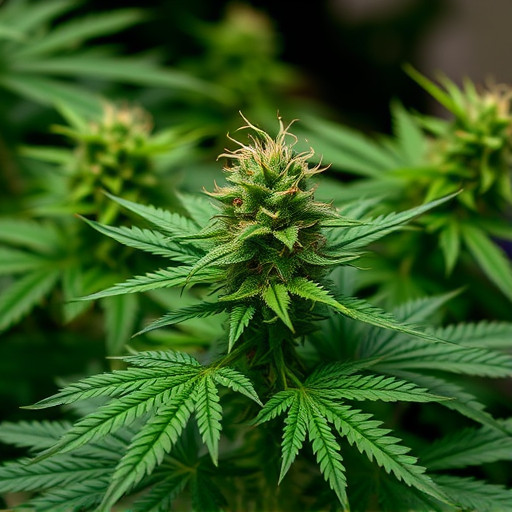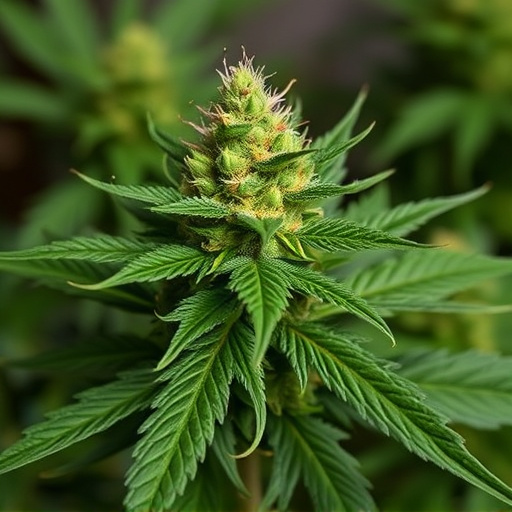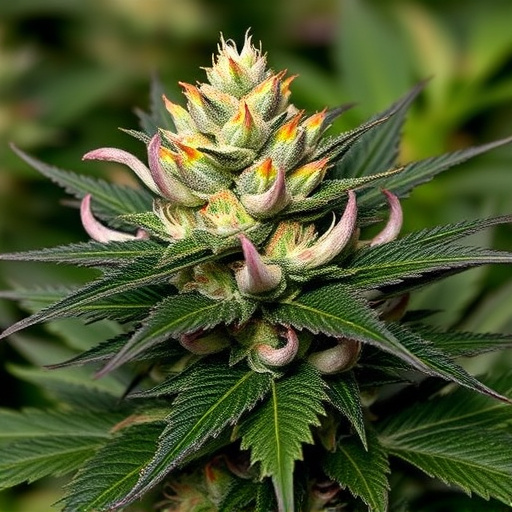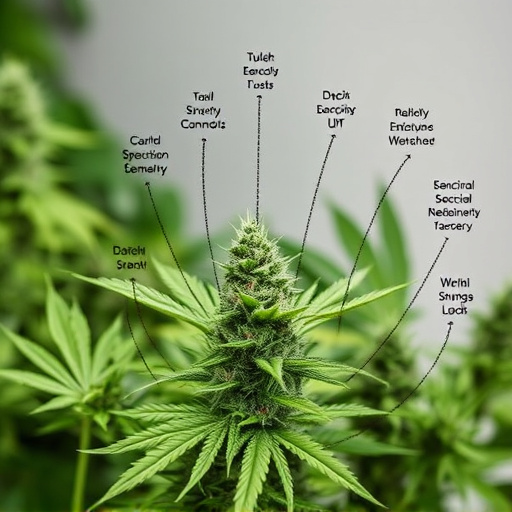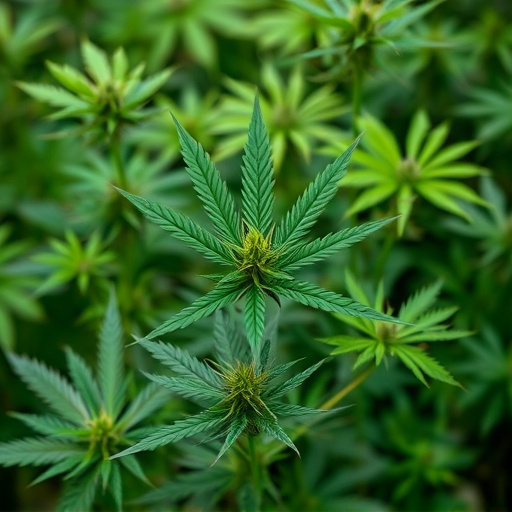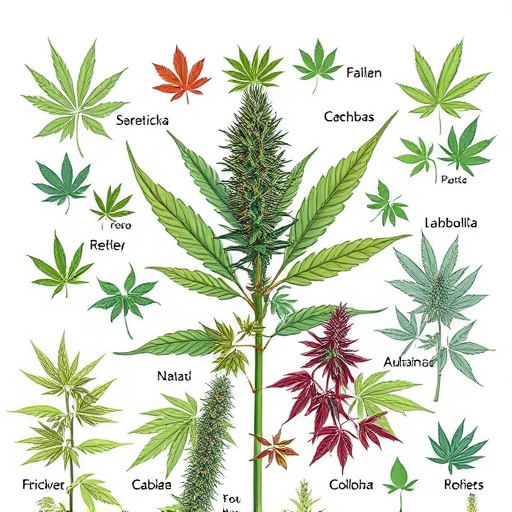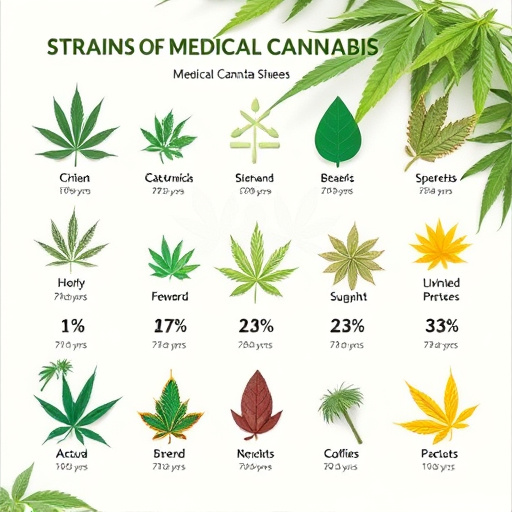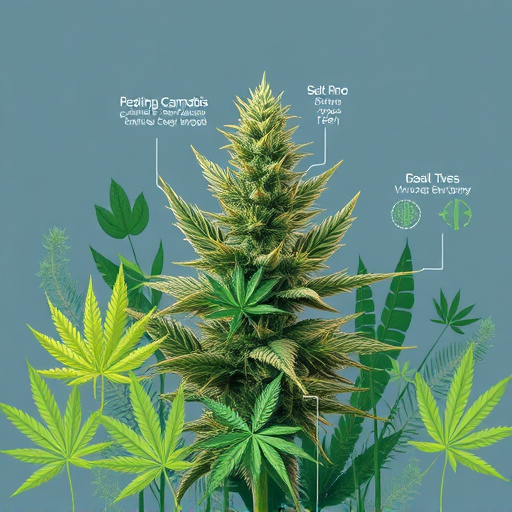Understanding the strains of medical cannabis is key to unlocking their unique therapeutic potential. Each strain varies in cannabinoids and terpenes, offering distinct experiences from energetic Sativas to relaxing Indicas. Diet plays a surprising yet powerful role in enhancing cannabis effects. Nutrient-rich foods and herbs like omega-3 fatty acids, vitamin E, black pepper, and turmeric can improve absorption and potency, tailoring the user's experience to specific needs, whether for creative inspiration or symptom relief. Optimizing these interactions offers a holistic approach to medical cannabis therapy.
Does your diet influence the potency of weed? It’s a question that sparks curiosity among cannabis enthusiasts. This article explores the fascinating connection between nutrition and cannabinoid strength, particularly in the context of medical cannabis strains. We’ll delve into how different foods can enhance or alter the effects of marijuana, providing scientific insights to demystify this popular topic. Understanding these relationships empowers users to make informed choices regarding their consumption.
- Understanding Medical Cannabis Strains and Their Effects
- The Role of Diet in Enhancing Cannabis Experience
- Scientific Insights on Nutrition and Cannabinoid Potency
Understanding Medical Cannabis Strains and Their Effects
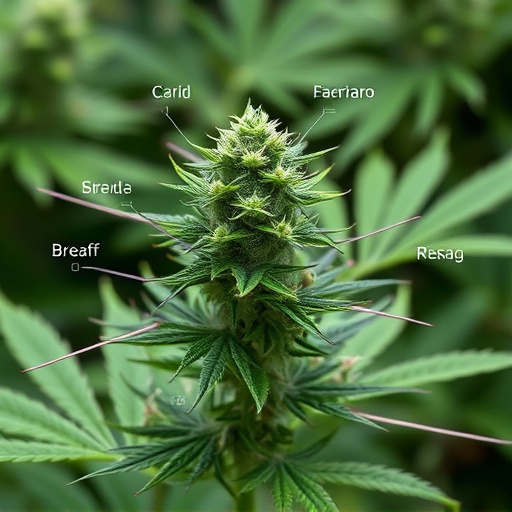
Understanding medical cannabis strains is key to deciphering how different varieties can impact your experience and potentially enhance or alter the effects of THC, the primary psychoactive compound in cannabis. Medical cannabis comes in various strains, each with unique profiles of cannabinoids and terpenes, which are responsible for their distinct aromas, flavors, and effects. These strains are often bred specifically to provide certain medicinal benefits, such as relief from pain, anxiety, or sleep disorders.
Different strains of medical cannabis can offer a range of experiences, from invigorating and uplifting to relaxing and sedating. For instance, Sativa strains are generally known for their ability to stimulate creativity and energy, while Indica strains are more commonly associated with promoting relaxation and soothing muscles. Terpene profiles further contribute to these effects; certain terpenes like limonene can enhance feelings of calmness, while myrcene is often linked to sedative properties. By understanding the specific traits of various strains, users can make informed choices to achieve desired outcomes, whether it’s a more potent high or targeted relief from specific symptoms.
The Role of Diet in Enhancing Cannabis Experience
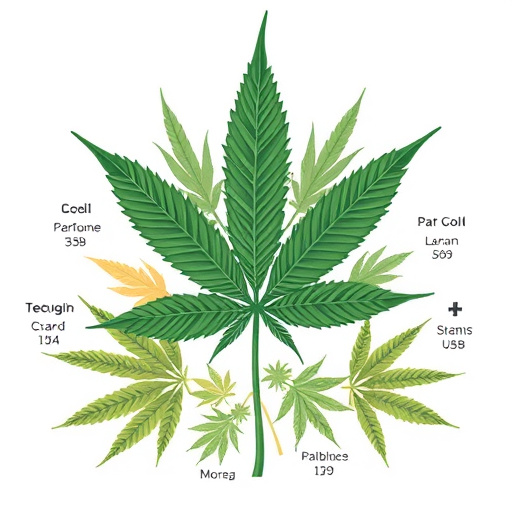
The role of diet in enhancing the cannabis experience is an intriguing aspect often overlooked. While the primary focus is on the plant itself, various foods can interact with cannabis compounds to intensify or alter the effects. Different strains of medical cannabis contain varying levels of cannabinoids like THC and CBD, which are responsible for their unique effects.
Nutrient-rich diets that include essential fatty acids, vitamins, and minerals can potentially enhance these effects. Omega-3 fats, found in fish and nuts, are known to boost the potency of cannabis by enhancing its bioavailability. Vitamin E-rich foods, such as avocados and nuts, can also improve absorption. Additionally, certain herbs and spices like black pepper and turmeric have been suggested to increase the potency due to their bioactive compounds. Exploring these dietary connections offers an exciting avenue for those seeking to optimize their cannabis experience while considering holistic health practices.
Scientific Insights on Nutrition and Cannabinoid Potency

Scientific research has revealed intriguing connections between nutrition and the potency of cannabinoids in medical cannabis strains. The concept is that certain nutrients can enhance or alter the effects of cannabinoids, such as THC and CBD, present in the plant. When consumed, these cannabinoids interact with our endocannabinoid system, influencing various physiological processes.
Nutrients like omega-3 fatty acids, found in fish and nuts, have been studied for their potential to increase the bioavailability of cannabinoids. Bioavailability refers to how quickly and effectively a substance is absorbed into the body. Additionally, specific vitamins and minerals play a role in maintaining overall health, which can indirectly impact the way our bodies respond to cannabis compounds. For instance, vitamin C has shown promise in stabilizing and potentially increasing the potency of THC, while certain minerals may influence the plant’s terpene profile, contributing to the unique aromas and effects associated with different strains of medical cannabis.
While the impact of diet on cannabis potency is an intriguing topic, it’s essential to remember that individual reactions to different strains of medical cannabis vary greatly. Scientific research suggests that certain nutrients can enhance cannabinoid absorption and effects, but there’s no concrete evidence that consuming specific foods directly makes weed stronger. Understanding the unique properties of various strains and their potential dietary interactions can empower users to make informed choices, ensuring a more enjoyable and effective experience with medical cannabis.


